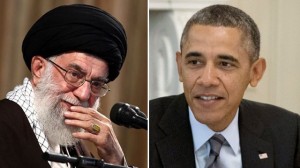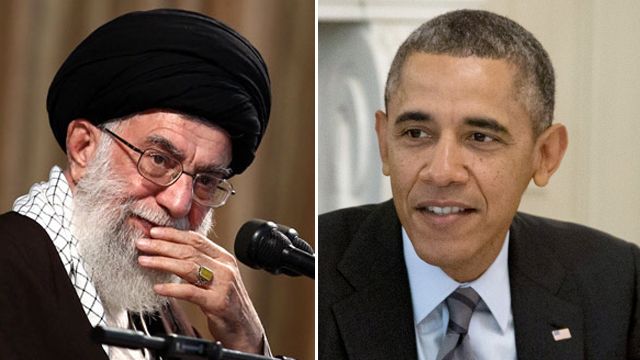By Amir Taheri • The New York Post
 What we actually have in writing about the areas of agreement between Iran and the US-led P5+1 group of nations is full of holes. Worse, it is already being described differently in English and in Persian — a matter that will surely complicate the task of writing a final, binding draft by June 30.
What we actually have in writing about the areas of agreement between Iran and the US-led P5+1 group of nations is full of holes. Worse, it is already being described differently in English and in Persian — a matter that will surely complicate the task of writing a final, binding draft by June 30.
Even the statement we have was merely released in the name of EU foreign-policy czarina Federica Mogherini and Iran’s foreign minister, Javad Zarif. It’s not signed, because almost no one had the authority to sign anything at this stage.
Many of the agreements plainly benefit Iran:
• Iran will continue its full nuclear program, keeping open all its sites — including Fordo, Isfahan, Natanz and Arak, the closure of which had been a key demand of the United States and its allies for the past decade or so.
• The heavy-water nuclear plant at Arak will be finished, despite Washington’s once-strong objections.
• Iran can upgrade its installations at Fordo but will focus the site on producing isotopes for medical and agricultural use. (Of course, Iran can switch the site back to producing weapons materiel whenever it chooses.)
• Once the final draft is approved by the UN Security Council, all sanctions imposed against Iran would be lifted. In the meantime, the P5+1 agree not to impose any new sanctions on Iran over the nuclear issue.
• Once the UN Security Council has passed a resolution canceling all its previous resolutions on the Iranian nuclear issue, a timetable would be established for the mutual implementation of the accords by Iran and other powers.
Thus, the prospective deal would legalize much of what Iran has already done in violation of its past treaty commitments, and free the Iranians of the sanctions imposed because of those violations.
What would Iran promise to do in return?
• Maintain its uranium enrichment at the current level for 10 years — after which it will no longer have to observe any limits. It can maintain 6,000 centrifuges in full operation, far more than Washington had once demanded.
• “Neutralize” the uranium it has already enriched to above 6 percent — to either convert it to fuel rods or exchange it for uranium fuel from abroad. The United States dropped its demand that the 6,000-plus pounds of stocks be transferred out of Iran.
• Join the Additional Protocols of the Nuclear Nonproliferation Treaty — granting International Atomic Energy Agency inspectors much greater rights to go wherever they choose.
Again, Iran’s violations of the regular NPT protocols had brought it, according to President Obama’s remarks Thursday, within months of becoming a nuclear-weapons power. Does the IAEA even have enough inspectors to enforce the Additional Protocols in a nation of 76 million?
The United States, as a nation, has every reason to be unhappy about the outcome of the preliminary talks: The outlined deal, by Obama’s best hope, would leave Iran within a year of going nuclear — and eventually end even that limit.
Yet the Obama administration may be happy that it has achieved some of its tactical aims.
First, the final agreement won’t take the form of a treaty, and so needn’t be submitted to the Senate.
Second, Obama is on his way to a framework that will tie the hands of his successors for at least 10 years. A future president who tries to revisit the Iranian nuclear project would run into a big hurdle in the shape of the UN Security Council, where Russia, a supporter of Iran, has veto power.
The accord announced Thursday in Lausanne has more holes than Swiss cheese. It is certain to whet Iran’s nuclear appetite while provoking a nuclear arms race in the Middle East and, perhaps, beyond.
This is an agreement between two factions. The American faction, led by Obama, wanted to make any future change in US policy on Iran difficult if not impossible. It plainly hopes that, by supporting Iran as a regional power, it can persuade Tehran to moderate its adventurist policies.
In Iran, the Rafsanjani faction (which includes Zarif and President Hassan Rouhani) hopes that, by claiming a major diplomatic victory, it can further weaken more radical factions, win control of parliament next year and, perhaps, even capture the big prize: the office of Iran’s “supreme leader” — now held by Ali Khamenei, 75.
Just as Obama has been prepared to sacrifice US national interests in the service of his more narrow goals, his Iranian partners are prepared to put much of Iran’s industrial, energy and security policies under international tutelage for a decade.
All that said, the statement released Thursday states outright that it is of no legal value. It must be taken as a statement of intent, presumably with a pinch of salt.
And between the cup and the lip there is many a slip.
